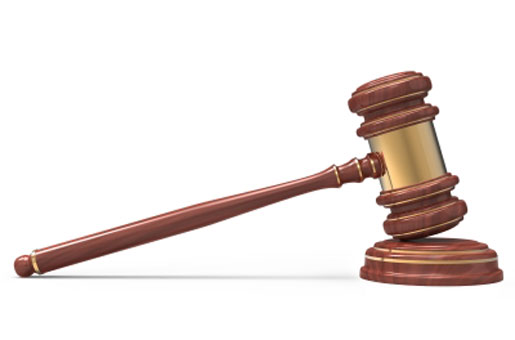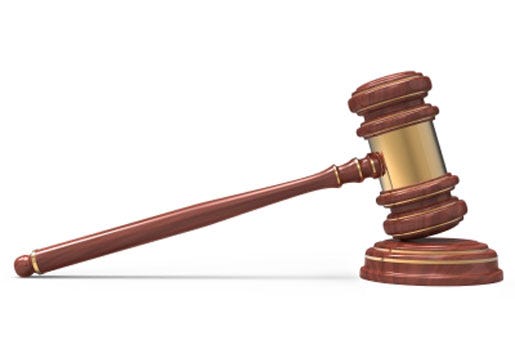Will other morcellator manufacturers follow Johnson & Johnson's lead and settle lawsuits related to the devices?
April 1, 2016

Nancy Crotti

Johnson & Johnson isn't saying why it has been settling consumer lawsuits over power morcellators, but other manufacturers of the surgical devices linked to the spread of uterine cancer have surely taken notice.
The Wall Street Journal has reported that J&J, which manufactured about 75% of the morcellators on the market, has settled approximately 70 cases and is working on reaching settlements in more. This development came just a few months after the Judicial Panel on Multidistrict Litigation consolidated several morcellator cases against J&J's Ethicon unit in U.S. District Court for the District of Kansas.
Ethicon and other companies manufactured morcellators used by surgeons to grind up uterine tissue during hysterectomies and myomectomies for laparoscopic removal. FDA estimates of undetected cancer among these patients have fallen from 1 in 10000 to 1 in 350, although some dispute the latter figure.
Power morcellators had been used to remove patients' uteruses and fibroid tumors in laparoscopic procedures for about 20 years before consumer outcry prompted government investigations. Some surgeons continue to use morcellators because they believe the risks of morcellation outweigh the potential adverse events of alternative procedures, like open hysterectomy.
Some health insurers, including Highmark and United Healthcare, have said they will not cover use of morcellators during hysterectomies. A number of health systems and hospitals have stopped performing hysterectomies with morcellation.
Some patients and families are probably happy to settle their lawsuits and put the matter in the past, but not the husband and wife physicians who have been among the most outspoken about the devices. Dr. Amy Reed found out soon after having a hysterectomy with a device made by German manufacturer Karl Storz GmbH & Co. that she had uterine sarcoma.
Reed's husband, Dr. Hooman Noorchashm, said he hopes their lawsuit and others will continue so the public can see "who the players are, how they behaved, what laws were violated or need to be in place."
Reed, a mother of six, has had several recurrences of cancer, and the family has moved to Pennsylvania from Massachusetts to be closer to her relatives, Noorchashm said.
"Every one of these complaints is really an opportunity for a public record to be created, and for the public to really understand, and for government regulators to understand, what went wrong here," he added.
Storz has moved to dismiss the couple's lawsuit, according to court papers. The company did not respond to a request for comment to this story.
A couple of attorneys familiar with lawsuits over medical devices said they believe that J&J's decision to begin settling these suits will likely spur other manufacturers to consider their options.
Amy Alderfer of law firm Cozen O'Connor's Los Angeles office has worked on cases involving vaginal mesh, insulin pumps, spinal stimulators, and implantable cardiac devices. Having one defendant settle does not necessarily create a domino effect, in her experience.
"It really probably comes down to a business decision and just looking at your own portfolio and the documents you have," Alderfer said. "When you have someone who has a major component of the industry settling, that is something that they'll have to take notice and think about and decide if for them if it makes wise sense from a business point of view as well."
The combination of a major manufacturer's decision to settle and FDA actions surrounding a device "suggests that there are times when settlement is the better option than to fight to the death," added Melissa Markey of Hall Render Killian Heath & Lyman's Troy, MI, office.
"Johnson & Johnson has obviously made that cost-benefit calculus and have decided that from their perspective, it is a more appropriate course of action to settle rather than to try and litigate this, which may very well be a very reasonable course of action of them to choose," Markey said. "It seems to me that given what is becoming known about those devices that it may be a very reasonable thing to do for the device makers to settle rather than to litigate this."
FDA issued a safety communication about power morcellators in April 2014. J&J suspended sales that month and withdrew the devices from the market in July 2014. Last year, the FBI reportedly began investigating what J&J knew about its risks before the recall. The Government Accountability Office said in September that it planned to investigate how the surgical devices were sold for so long before widespread safety concerns were raised. A dozen members of Congress petitioned GAO to look into the regulatory clearance, marketing, training, and adverse event reporting associated with morcellator use. Petitioners also asked the watchdog to determine what FDA is doing to ensure the devices, which are still commercially available from some companies, are safe.
Nancy Crotti is a freelance contributor to MD+DI. Reach her at [email protected].
[Image courtesy of KITTISAK/FREEDIGITALPHOTOS.NET]
You May Also Like


